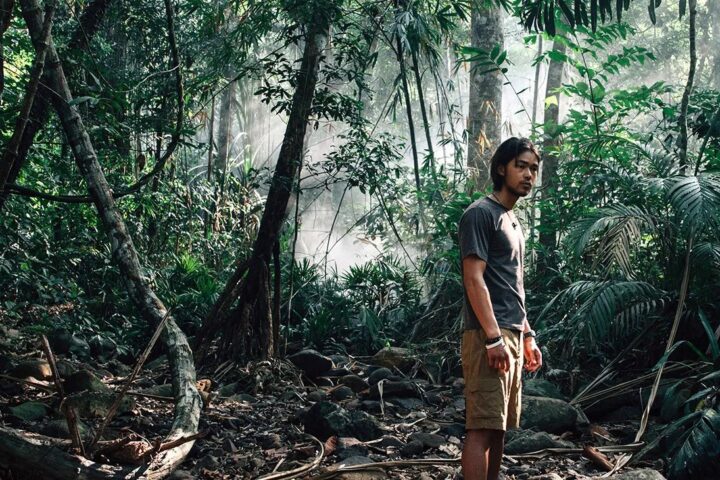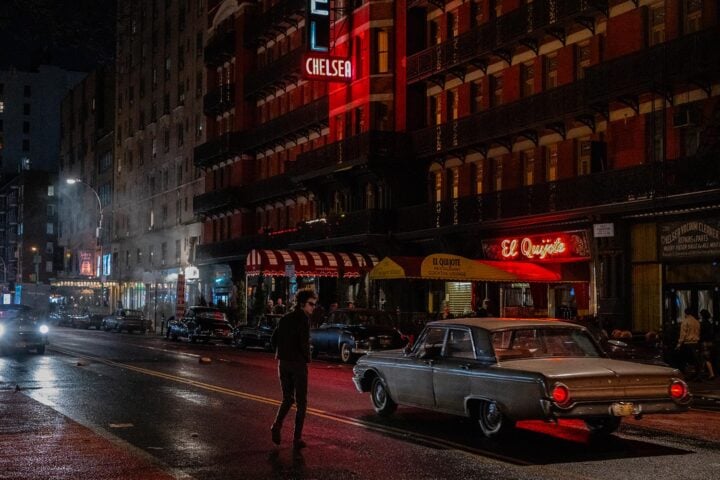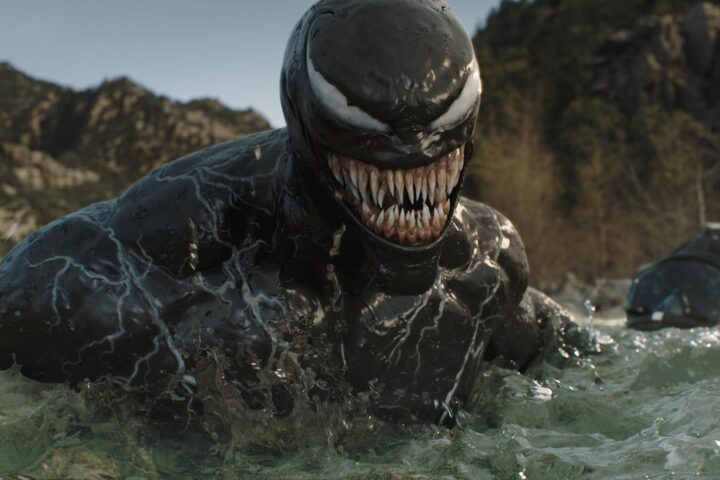Tracing the evolution of a fictional motorbike gang known as the Vandals, writer-director Jeff Nichols’s The Bikeriders takes its inspiration from a photobook of the same name by influential mid-20th-century photographer Danny Lyon. A major contributor to the “new realism” photography movement, Lyon lived alongside his leather-clad petrolhead subjects for months at a time, helping him create urgent, spontaneous images of their outlaw lifestyle that oozed authenticity. Unfortunately, those latter qualities are in short supply in the film, but the sheer exuberance of the story and the stylistic brio of Nichols’s direction often compensate.
The Bikeriders is narrated by Kathy (Jodie Comer), the girlfriend of fiercely committed young Vandals member Benny (Austin Butler). She relays the idiosyncrasies and transgressions of the gang from a slight remove as it evolves from a blue-collar fraternity and surrogate family to a nihilistic crime syndicate. As endearing as Kathy’s disapproving bemusement can be, this conversational voiceover feels mostly superfluous. Serving as an on-ramp into a milieu that’s already relatively familiar, it also adds to the overall feeling of artificiality, reducing the gang to archetypes and permitting only a superficial understanding of what motivates them.
Without a clear insider perspective as counter-balance, the film can often feel like Goodfellas as narrated exclusively by Henry Hill’s wife Karen, which is far from the only comparison to be drawn between Nichols’s kinetic, flashback-heavy depiction of violent machismo set to a 1960s pop soundtrack and Martin Scorsese’s iconic mob movie. Indeed, very little about The Bikeriders feels like it doesn’t already have a clear cinematic precedent, though this is perhaps not entirely unintentional. For one, the initial formation of the Vandals by grizzled leader Johnny (Tom Hardy) is itself shown to be partly a result of him catching László Benedek’s classic biker flick The Wild One, starring Marlon Brando, on television one evening.
Lyon himself (Mike Faist) is also a background presence in the film, prompting Kathy for her recollections and occasionally interacting with the Vandals. Heightening the sense of metatextuality, Nichols deploys the odd direct address to camera, allowing Ziplo (Michael Shannon), Cockroach (Emory Cohen), and other colorful supporting characters to give an account of themselves. As a result, we wind up with some tension between their everyday lives and their self-image as mediated by the photographer’s attentive yet somewhat voyeuristic gaze.
But despite these efforts to analyze the tropes and themes that he’s indulging throughout, Nichols generally seems a lot less interested in digging beneath the surface of American mythology than he was in more multi-layered films like Take Shelter and Mud. The sociological context that led to the creation of biker gangs at this time in history is also barely touched upon, with a few references to Vietnam and hippie culture and a sense of contempt toward college boy “pinkos” being the only aspects tethering the story to the real world.
The main emotional through line of The Bikeriders is Kathy’s tug of war with Johnny over Benny’s loyalties, particularly after a savage assault in a bar leaves the latter lucky to be alive and has Kathy urging him to quit the Vandals for good. Though unsubtle, the broad strokes that Comer and Hardy paint with have a lot of potency, particularly in a late scene where their characters are able to come to a kind of compromise over Benny’s fate. Unfortunately, Butler’s unconvincing bad-boy posturing is only slightly less caricatured than his eponymous role in Baz Luhrmann’s Elvis, which limits how affecting this central love triangle can be.
Closing with still images from the original book, The Bikeriders seems to reveal itself as an homage to Lyon and his documentary tradition as much as the world that it depicts. Evoking a photograph of a photograph, Nichols’s film makes it difficult to discern anything new or insightful about its biker subjects, much like the dimly lit bars and clouds of exhaust fumes or cigarette smoke in which a lot of the action takes place. However, its aura of sincere, uncomplicated Americana is often just as intoxicating and hard to resist.
Since 2001, we've brought you uncompromising, candid takes on the world of film, music, television, video games, theater, and more. Independently owned and operated publications like Slant have been hit hard in recent years, but we’re committed to keeping our content free and accessible—meaning no paywalls or fees.
If you like what we do, please consider subscribing to our Patreon or making a donation.




